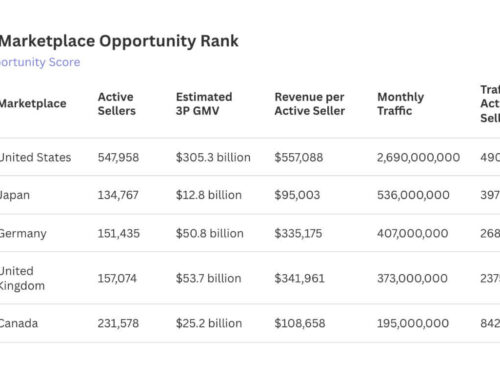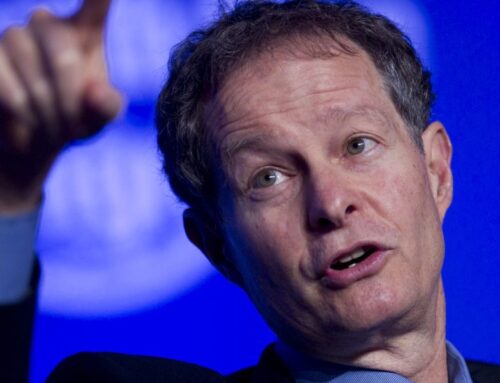Here’s What JPMorgan Chase Investors Need to Know About CEO Jamie Dimon’s “Security and Re
October 23, 2025
The U.S.’s biggest bank wants to be an active participant in shaping the country’s sociocultural competitiveness.
Megabank JPMorgan Chase (JPM 1.00%) is betting on America.
That’s the top takeaway from an announcement the company made last week, anyway. The U.S.’s biggest bank measured by assets said it’s committing as much as $1.5 trillion to “facilitate, finance and invest in industries critical to national economic security and resiliency.” Areas where JPMorgan intends to focus its resources unsurprisingly include technology, energy, and manufacturing a wide range of products in pharmaceuticals, robotics, and industrial materials.
The question the company’s shareholders are asking, of course, is: What does this mean for them?
Answer: Quite a bit, actually.
The plan
There’s always been something of a line separating investment capital and the sociotechnical direction in which an entire nation is moving. Sure, corporations often seek to influence political policy, and they certainly capitalize on a nation’s economic opportunities to grow. Helping ensure that a society is equipped to deal with near-term and long-term challenges, however, is relatively new.
Nevertheless, it’s becoming the norm. As JPMorgan Chase’s Chief Executive Officer Jamie Dimon explained in the press release: “It has become painfully clear that the United States has allowed itself to become too reliant on unreliable sources of critical minerals, products and manufacturing — all of which are essential for our national security.” He added: “Our security is predicated on the strength and resiliency of America’s economy.” Bottom line? “America needs more speed and investment.” JPMorgan Chase’s commitment to invest as much as $1.5 trillion marks an increase from a previous pledge of $1 trillion.

Image source: Getty Images.
It won’t all be deployed at once. This is a 10-year plan, in fact. The funds aren’t simply going toward the purchase of top stocks in the nation’s most important industries, either. Indeed, it seems as if the megabank is looking for ways to invest in outfits that aren’t exactly big, or even publicly traded.
JPMorgan Chase says it “will make direct equity and venture capital investments of up to $10 billion to help select companies primarily in the United States enhance their growth, spur innovation, and accelerate strategic manufacturing,” adding that “the initiative will also include special, thematic research on private companies and supply chain management issues related to rare earths, AI and technology.” The bank is even hiring all new staff to ensure that this capital is being put to work in the best way possible.
But what does it all mean for JPMorgan shareholders, and does it make this stock an even more compelling buy?
Your top questions answered
The news immediately raised several questions. Here are the top four.
1. Where’s the money coming from?
The press release itself never explicitly said as much, but as was largely expected, at least a big chunk of the $1.5 trillion will come from the company’s current and future cash hoard created by profits. As Chief Financial Officer Jeremy Barnum said during last week’s third-quarter earnings call:
We’re generating a lot of organic capital. We have a very large excess…an aspiration to add another $0.5 trillion of this type of lending at the margin, that’s the type of RWA [real world asset] growth that consumes excess. And obviously, in the context of the excess, $10 billion of direct equity investments that are incremental is a nice deployment of a modest portion of the excess.
For perspective, JPMorgan Chase earned about $44 billion in net income through the first three quarters of this year, but boasts nearly $4.6 trillion in assets.
There’s nothing especially unusual about a bank investing a portion of its otherwise-idle money, by the way, even if it is required to maintain a minimum amount of liquidity to cover customer deposits and the like.
This effort also suggests that JPMorgan Chase intends to connect opportunities with third-party capital, via private and public fundraising.

JPMorgan Chase
Today’s Change
(-1.00%) $-2.98
Current Price
$294.11
2. Is this an actual investment?
Kudos to JPMorgan Chase and Dimon for being pro-American. Make no mistake, though — this isn’t charity work. Dimon made it very clear during a conference call to discuss the security and resiliency initiative that “This is not philanthropy. This is 100% commercial.”
3. Is the U.S. government involved?
As pro-America as the plan may be, President Donald Trump isn’t involved. Dimon and the program’s other overseers have been piecing together the idea for months now. Indeed, in 2023, Dimon wrote that the U.S.’s supply chains of critical products and materials “must be domestic or only open to completely friendly allies or partners.” This is simply follow-through (with significant embellishment) on that concern.
The only government involvement will be discussions with regulators to figure out ways to “remove obstacles that stand in the way.” The press release specifically mentioned “excessive regulations, bureaucratic delay, partisan gridlock and an education system not aligned to the skills we need” as roadblocks that need to be addressed.
4. Is this the shape of things to come?
There was a time when the entire investment industry was content to let businesses and industries do their thing, and then simply let investors decide which were the most promising, risk-adjusted prospects for their capital.
Not anymore, though. The world’s become too complicated to assume that companies and industries will grow into what investors hope for, or even expect, them to become. Investors are increasingly looking to become involved earlier in an opportunity’s existence, giving them the right to help shape and steer an organization or industry. In many cases, this may well deter a privately held company from ever going public.
It’s arguably the right/best direction for the investing intermediary business. As the stock market itself becomes more volatile and less rewarding, capitalism is indeed likely to ease its way toward more privatization and more holistic oversight like the plan that JPMorgan Chase is putting in place now.
Is JPMorgan Chase stock a buy because of this initiative?
The overarching question remains, of course: Does this 10-year, $1.5 trillion investment plan make JPMorgan Chase stock more of a buy that it wasn’t before?
The vast majority of investors already saw it as a strong buy. The shares recently fell — although not by much — from a record high following a near-200% run-up from their 2022 low. Bullish interest was never in question. But, yes, the initiative does make JPMorgan Chase shares an even more compelling investment prospect than they were just a few days ago.
It’s admittedly a bit unusual to see any bank take such a strong, specific interest in the direction a particular country’s competitiveness is or isn’t moving in. Rather, for most of their history, banks have simply been responsive service providers for whatever the environment was at the time.
The economic and investing environment of 2025, however, is arguably different than it’s been in the past.
Take technology, for instance, particularly now that artificial intelligence tools are in the mainstream, and always at your fingertips. The world is incredibly noisy, digitally speaking, overwhelming… well, everyone. Investors aren’t immune, creating volatility that causes the stock market itself to be difficult to navigate.
There’s also no denying that too few huge companies now make up too much of the overall stock market’s total value, while too many small publicly traded outfits aren’t actually worth owning. It’s the private up-and-comers that offer the real opportunity, but they’re difficult to find, let alone invest in. Owning a stake in JPMorgan Chase is an efficient way of indirectly owning these promising start-up enterprises.
So, yes — JPMorgan Chase stock is an even better buy than it was a little more than a week ago. Its Security and Resiliency Initiative is the sort of proactive effort that all companies need to make in an environment where every aspect of an investment should be well-managed from its very inception. That’s all Jamie Dimon is really trying to do. Given his and JPMorgan’s track record, this forward-thinking effort is likely to pay off nicely for shareholders.
Search
RECENT PRESS RELEASES
Related Post


